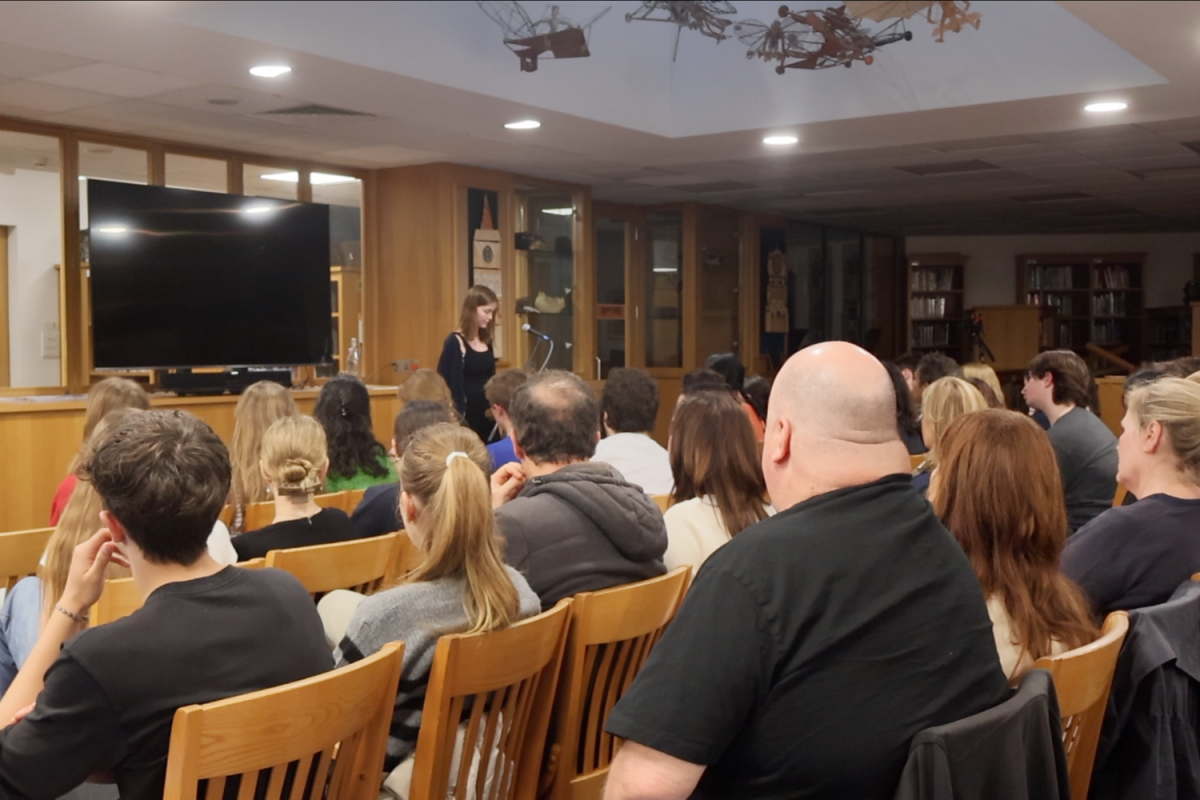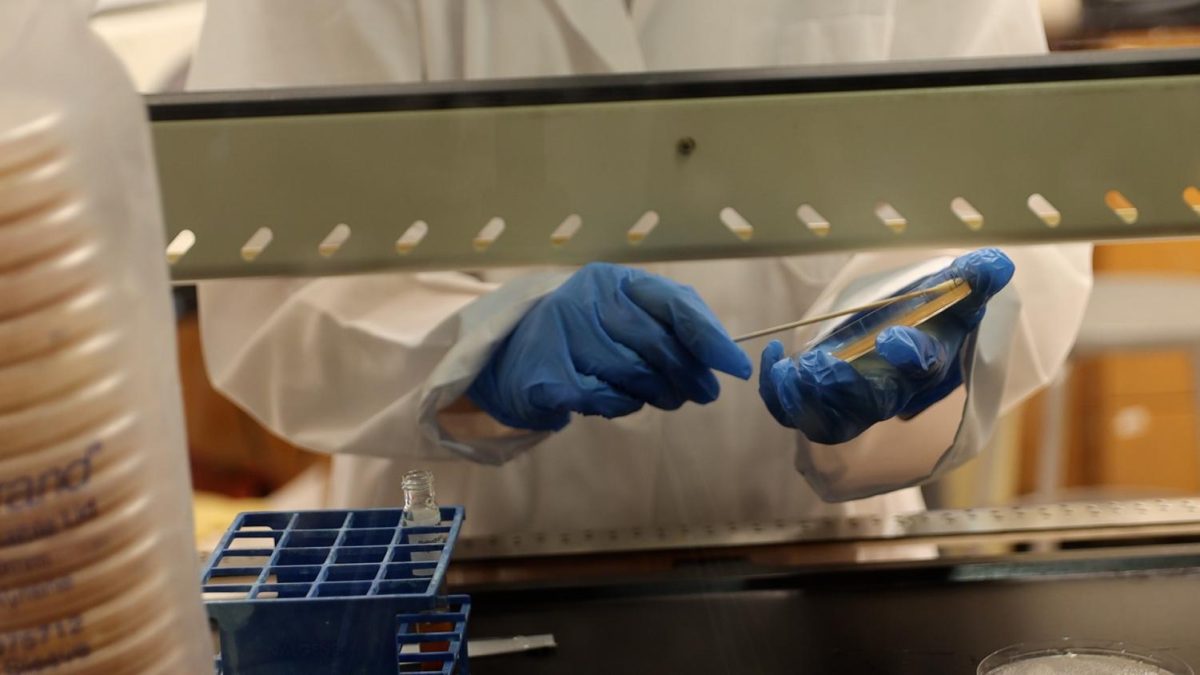The College Board began with a clear social mission: to help more students get into top colleges. However, high testing fees and contentious spending patterns cast doubt on whether the organization still embodies that initial goal.
The College Board originally developed their SAT college aptitude tests in 1926 to provide a way for students in disadvantaged public school districts to demonstrate their college readiness. Despite its claims, the organization seems to be more concerned with profit than its initial social mission.
The College Board is legally considered a non-profit and, as such, does not pay taxes on the profit aligned with its mission. It is questionable whether the public impact of this non-profit is substantial enough to grant College Board tax breaks.
If they funneled the majority of their profit back to the public, tax breaks would be warranted. However, their Form 990, a federally required breakdown of nonprofits’ expenditures, tells a different story. The “Highest Compensated Employees” section explains that The College Board paid its CEO David Coleman $1,826,946 in 2022. Considering that The College Board is a non-profit, Coleman’s salary is surprising.
Not to mention, The College Board only gave $4,418,532 in grants to domestic individuals—denoting the amount of money they spend on scholarships to students—while it spent that and an additional $400,000 on just its advertising.
In addition to tax breaks, The College Board also sucks up government subsidies from the U.S. Department of Education. The College Board charges $98 per Advanced Placement test taken in the U.S., U.S. territories, Canada, and all DoDEA schools. Additionally, the College Board charges even more for schools in areas outside these designated countries: a whopping $128. To pay these high fees, taxpayer money is used to reduce the costs for underprivileged students. So, although The College Board was originally developed to help those underprivileged students, the responsibility has fallen back on the government.
The College Board’s setup is also uncharacteristic of a non-profit due to the monopoly it enjoys on AP tests. Unlike the SAT which competes with the ACT in popularity, College Vine writes that AP tests are the most commonly used courses for college credit in the United States over other courses such as IB exams.
Another concerning facet of the company is its profit margin. The sheer amount of money that The College Board raises from students who sign up for AP, PSAT, and SAT exams is staggering. According to The College Board’s Form 990, the company generated a little under half a billion dollars from the Advanced Placement program alone during the 2022 fiscal year. Additionally, The College Board enjoyed substantial profits from the SAT Suite of Assessments, raking in a little under $300,000,000. Students suffer under these high testing fees, as they take and retake exams to attain the scores they feel are needed on college applications.
Granted, score reports on the SAT are declining in importance, as somewhere near 80% of institutions have gone test-optional. However, high SAT scores do increase applicants’ chances of being accepted to their college of choice and have even been correlated to higher income in future careers. As such, many students still feel that the SAT is a necessary addition to their applications, and thus find themselves paying $60 per test. Many students take these exams multiple times, as The College Board suggests that scores will continue to improve.
Guidance Counselor Mrs. Christina Piascik reaffirms that colleges take steps to limit credits given for AP courses.
“Transferability depends on the college, what your major is at the college, and what score you earn on the AP exam,” Mrs. Piascik says. “Some colleges also cap the number of total credits you can transfer and some also cap the number within a subject area… so you can only transfer so many.”
Even more costly are The College Board’s AP exams, offered at the conclusion of AP courses designed to cover the same topics as an undergraduate college class. The exam is graded on a scale of one to five to assess students’ understanding. Exams are intentionally difficult to ensure students display the merit admissions boards are seeking.
Many colleges encourage applicants to report their AP exam scores to demonstrate academic rigor. Yet, most institutions have set exclusive standards; the average student earns a three on an AP test, and the majority of colleges only offer credit for scores of four or five. As a result, many students invest large sums of money into taking the tests. In 2023, The College Board made about $514 million on AP tests alone, yet students are still uncertain that they will see a return on investment.
This story was originally published on The Spotlight on March 25, 2024.





![With the AISD rank and GPA discrepancies, some students had significant changes to their stats. College and career counselor Camille Nix worked with students to appeal their college decisions if they got rejected from schools depending on their previous stats before getting updated. Students worked with Nix to update schools on their new stats in order to fully get their appropriate decisions. “Those who already were accepted [won’t be affected], but it could factor in if a student appeals their initial decision,” Principal Andy Baxa said.](https://bestofsno.com/wp-content/uploads/2024/05/53674616658_18d367e00f_o-1200x676.jpg)






![Junior Mia Milicevic practices her forehand at tennis practice with the WJ girls tennis team. “Sometimes I don’t like [tennis] because you’re alone but most of the time, I do like it for that reason because it really is just you out there. I do experience being part of a team at WJ but in tournaments and when I’m playing outside of school, I like that rush when I win a point because I did it all by myself, Milicevic said. (Courtesy Mia Milicevic)](https://bestofsno.com/wp-content/uploads/2024/06/c54807e1-6ab6-4b0b-9c65-bfa256bc7587.jpg)








![The Jaguar student section sits down while the girls basketball team plays in the Great Eight game at the Denver Coliseum against Valor Christian High School Feb. 29. Many students who participated in the boys basketball student section prior to the girls basketball game left before half-time. I think it [the student section] plays a huge role because we actually had a decent crowd at a ranch game. I think that was the only time we had like a student section. And the energy was just awesome, varsity pointing and shooting guard Brooke Harding ‘25 said. I dont expect much from them [the Golden Boys] at all. But the fact that they left at the Elite Eight game when they were already there is honestly mind blowing to me.](https://bestofsno.com/wp-content/uploads/2024/05/IMG_7517-e1716250578550-900x1200.jpeg)









![BACKGROUND IN THE BUSINESS: Dressed by junior designer Kaitlyn Gerrie, senior Chamila Muñoz took to the “Dreamland” runway this past weekend. While it was her first time participating in the McCallum fashion show, Muñoz isn’t new to the modeling world.
I modeled here and there when I was a lot younger, maybe five or six [years old] for some jewelry brands and small businesses, but not much in recent years,” Muñoz said.
Muñoz had hoped to participate in last year’s show but couldn’t due to scheduling conflicts. For her senior year, though, she couldn’t let the opportunity pass her by.
“It’s [modeling] something I haven’t done in a while so I was excited to step out of my comfort zone in a way,” Muñoz said. “I always love trying new things and being able to show off designs of my schoolmates is such an honor.”
The preparation process for the show was hectic, leaving the final reveal of Gerrie’s design until days before the show, but the moment Muñoz tried on the outfit, all the stress for both designer and model melted away.
“I didn’t get to try on my outfit until the day before, but the look on Kaitlyn’s face when she saw what she had worked so hard to make actually on a model was just so special,” Muñoz said. “I know it meant so much to her. But then she handed me a blindfold and told me I’d be walking with it on, so that was pretty wild.”
Caption by Francie Wilhelm.](https://bestofsno.com/wp-content/uploads/2024/05/53535098892_130167352f_o-1200x800.jpg)








